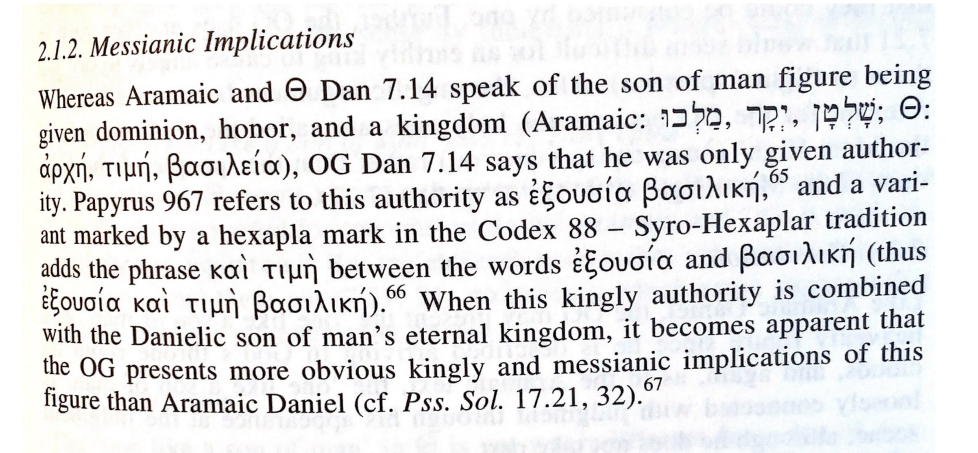Benjamin E. Reynolds writes that the Greek of Daniel 7:14 implies the kingly and messianic status of the "Son of Man" more forcefully than the Aramaic.
- Type
- Book
- Source
- Benjamin E. Reynolds Non-LDS
- Hearsay
- Standard Works
- Reference
Benjamin E. Reynolds, The Apocalyptic Son of Man in the Gospel of John (Wissenschaftliche Untersuchungen zum Neuen Testament 2 Reihe 249; Tübingen: Mohr Siebeck, 2007), 37
- Scribe/Publisher
- Mohr Siebeck
- People
- Benjamin E. Reynolds
- Audience
- Reading Public
- Transcription
Messianic Interpretation
Whereas Aramaic and Θ Dan 7.14 speak of the son of man figure being given dominion, honor, and a kingdom (Aramaic: מַלְכ֔וּ, וִיקָ֣ר, שָׁלְטָן; Θ: αρχη, τιμη, βασιλεια) OG Dan 7.14 says that he was only given authority. Papyrus 967 refers to this authority as εξουσια βασιλικη and a variant marked by a hexapla mark in the Code 88—Syro-Hexaplar tradition adds the phrase και τιμη between the words εξουσια and βασιλικη (thus εξουσια και τιμη βασιλικη). When the kingly authority is combined with the Danielic son of man’s eternal kingdom, it becomes apparent that the OG presents more obvious kingly and messianic implications of this figure than Aramaic Daniel (cf. Pss. Sol. 17.21, 32).
- Citations in Mormonr Qnas
The B. H. Roberts Foundation is not owned by, operated by, or affiliated with the Church of Jesus Christ of Latter-day Saints.

